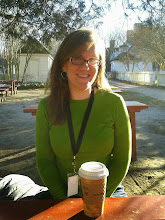Recently the Reconciling Ministries Network group that I'm part of on Facebook posted this blog entry by Joey Heath. In it, he responded to the question, asked in a conversation he was part of, of "what if he's wrong" in his belief that homosexuality is not a sin. Heath, who is a United Methodist seminarian working toward ordination, argues that if he's wrong, it doesn't matter. We're all sinners, and salvation comes from faith, not from one's correct stance on issues.
As anyone who knows me knows, I agree fervently with Heath's starting point--that homosexuality is "part of the beloved creation and not a sin." I agree that this is a very important question to have a cogent response to, because it will be asked, and because it furthers conversation rather than hanging on to a blind insistence that there's no possible WAY we're wrong. And, of course, I agree with his conclusion--we are saved by the grace of God, not our own orthodoxy.
But! I wasn't satisfied with the Methodism of his response. So I want to try to put it in what I feel is a more Methodist framework. Heath writes, "No matter how much we seek out perfection, it will be just beyond our reach, because we have sinned and therefore fall short."
Well, often I'm pretty tempted to agree with that, and I think many denominations would (?). But when I'm (hopefully) commissioned, according the the Discipline, I'll have to answer the question, "Do you expect to be made perfect in love in this life?" And I will have to answer yes. With God's help, of course. So I'm uncomfortable with the statement that perfection will always be just beyond my reach. That may be true, but I'd better believe it's not.
I don't think Joey Heath and I are at odds here, I just think we need to be clear about what perfection means. Christian perfection means for Wesley--as the Discipline says--perfection in love. Christian perfection doesn't mean "an exemption either from ignorance or mistake, or infirmities or temptations" (Sermon 40, I.9). So it follows that I could be "perfect," and still hold fast to an idea or doctrine that turns out in the end to be wrong.
But if I was perfect in love--or even if I was just far, far way and working toward this little by little--I think I would try my best to include the unincluded, however I understood that. I think I would have no choice but to stand up for justice--whatever my sincere but human idea of justice might be. And if I was wrong--if I am wrong--then I have faith that, through the grace of Christ and in the words of Julian of Norwich, "all will be well, and all will be well, and all manner of things will be well." And on that, Joey Heath and I agree.
Subscribe to:
Post Comments (Atom)

No comments:
Post a Comment